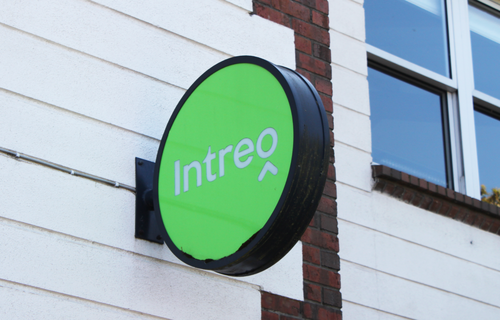On September 9th, 2020 Dr. Joe Whelan, lecturer and researcher with the School of Applied Social Studies at University College Cork published a paper entitled ‘Work and thrive or claim and skive: Experiencing the ‘toxic symbiosis’ of worklessness and welfare recipiency in Ireland’. The paper discusses experiences of a group of social welfare payment recipients. The experiences examined are focused on the dual experiences of “worklessness” and social welfare receipt, and the stigma that is attached to being both unemployed and in receipt of social welfare assistance. Whelan refers to this duality as a “toxic symbiosis”.
Whelan’s aim is to show the “negativity and corrosiveness” felt by individuals due to the “toxic symbiosis” of unemployment status and reliance on social welfare. He demonstrates this through excerpts of interviews conducted with 22 people throughout Ireland who had been, or still are, in receipt of certain social welfare payments. Pseudonyms are used throughout the excerpts.
Before detailing the experiences of the participants, Whelan prefaces by discussing his theorisation of the “toxic symbiosis”: the examination of deep-seated attitudes of placing personal worth and value on working/work ethic, as well as the stigma placed on those who are in receipt of social welfare which Whelan proposes “is considered as the antithesis to being in work and is therefore seen as a deeply shameful and stigmatised social position.”
Experiences of Participants
Firstly, Whelan discusses the experiences of Frank, a long-term Disability Allowance recipient. Having worked from the age of 13, Frank had to stop working due to an accident in his fifties and began claiming DA. Frank discusses the pride, independence and sense of self-worth linked to working:
It was just an amazing life I had. I thought I was the luckiest man in the world. I had a job and I could do the things that I wanted to do. If I wanted to go out and have a meal I could go out and have a meal. I’d be paying my own way. Nobody was paying for me.
His work ethic was instilled in him from a young age by his mother who taught him “you go out and make your own living; you don’t depend on other people to help you.” Whelan discusses how the language used by Frank suggests that by not working and making your “own living”, you would be doing something shameful. Frank found the need to claim DA difficult to deal with:
Didn’t want to accept it. I mean to say, when you work from 13 right up to here, nearly in your fifties, you don’t want to accept the fact that you can’t work anymore. You don’t want to accept the fact that you have to live on social welfare. . .other people are paying for to keep you.
Whelan then discusses Trish, a long-term recipient of Jobseekers Allowance. She talks about the importance of working in the context of making job applications, and the value she places on her status as a worker:
I want to be working. I’m a good worker. I’m a hard worker. It’s just a change in the career. And I’m after getting a few rejections letters. That kind of sets me back. But that’s normal, you know. Of course it’s normal. But I’m going to push through it. I know I will. It’s just getting there.
Trish, like Frank, also had a strong sense of work ethic instilled from a young age:
My Dad worked hard all of his life. He was never down in the Social Welfare looking for whatever, you know. So he did try to teach us not to go to the Social Welfare.
Again we see a sense of shame around the idea of seeking assistance in the form of social welfare payments. As Whelan puts it, this attitude “at once valorises work and demonises social assistance”, demonstrating the “toxic symbiosis”.
Whelan says that the “experience of work being held up as being virtuous by family members was common across the participant group.” Scarlett, a One Parent Family Payment claimant, also experienced this:
I know that lots of people are brought up to work hard. . .no one wanted to ask for help and [it was] looked down up to ask for help. . .I was brought up to work hard, so, you know, I was working from 13, you know, and I wanted a job and I like working (…)
Whelan also discusses experiences of externally-imposed work ethic in “broader, more social, domains.” Jane, who grew up in an area where there was no stigmatisation of engagement with social welfare services, discusses becoming aware of a different view:
I remember speaking to one friend of mine who I had just met who was from Douglas and, you know, very middle-class and she never went on the dole even when she was unemployed. You know, she would just keep looking for a job- ‘Oh, I’ll have to get a part-time job.’. . . But more than that I remember her having a reaction when I said I was signing on the dole. . . I remember her saying, like, why? She couldn’t understand. ‘Why don’t you just look for a job?’ (…)
Another interviewee, Martin, echoes this reinforcement of stigma from external sources when talking about the negativity he has experienced:
From my perspective I’ve experienced there to be a stigma involved in mentioning that you’re in any way accessing the welfare system. . .I’ve experienced it looking for positions for jobs. Once you mention that you’re unemployed or that you’ve been out of work for so many months, so many years, they’re just—you know, immediately the conversation changes.
Whelan goes on to discuss more interviewees’ experiences of this “toxic symbiosis”, as well as how the concept of “work ethic” is threaded through the Irish social welfare system, and the further mental health effects of the negativity surrounding being workless and reliant on social welfare.
